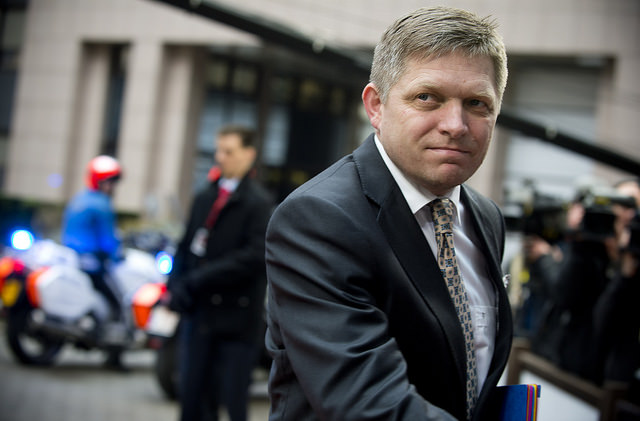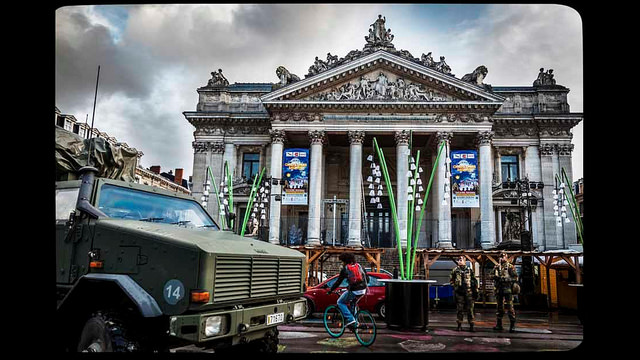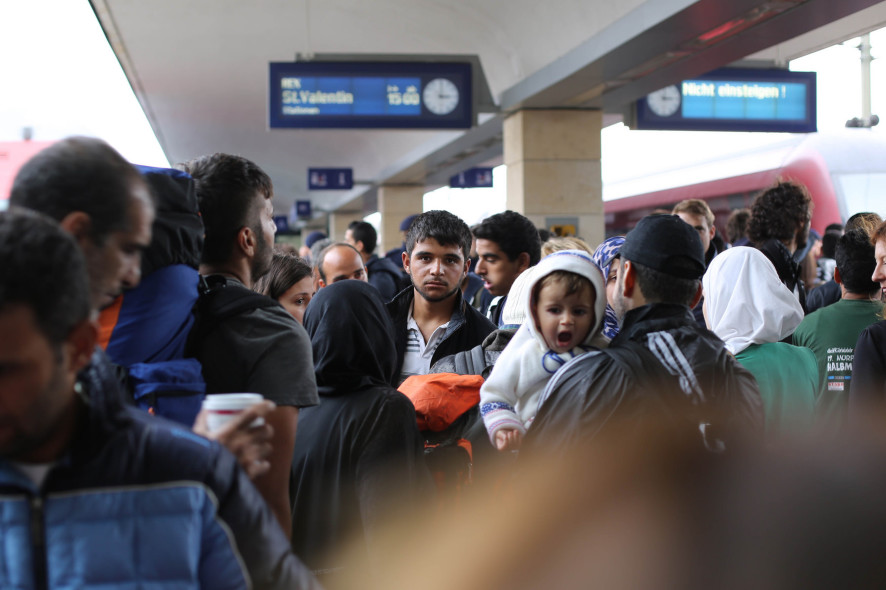by Lucas Rasche
The continuous migratory movement towards Europe across the Mediterranean and the Balkan countries has become a dominant theme for Europe’s politicians and the media. It has dominated regional elections in Germany, it has become a key factor in Britain’s national referendum, and it determines the EU’s relationship with its neighbourhood. After all, Europe’s refugee problem has triggered a vivid debate around the question of how to best handle the current situation. Whereas opinions differ, it seems as though a particular language has established itself in the ways migration is illustrated and referred to. This language is characterised by a number of recurring terms, such as flood, wave, masses, and crisis, used as a means to describe the people seeking shelter within the EU. The way we talk about those fleeing war and destruction is thereby not only frightening, it also bears significant political implications.
Metaphors are strong figures of speech. They help us comprehend and identify a phenomenon by equating it to something already known, and thus help us to perceive and categorise reality. In his seminal work, Klaus Theweleit has shown how desire and fear subconsciously feed into the metaphors we employ. Often, metaphors therefore reveal more about those using them, than they do about what is depicted by them.
When looking at the metaphorical language used to describe the current migration towards the EU, the image of a wave, or mass of migrants flooding Europe connotes a desire or fear to protect and secure our continent. The words used to illustrate what is happening at Europe’s borders create the impression that our societies are under threat, in need of a wall or dam to control the tide. Not only is the choice of metaphors extremely cynical, seeing how most migrants lose their lives on open water, moreover is the question rarely asked, who it is we need to protect us from, or what exactly we need to guard. What our use of language does, is thus to simplify an essentially complex situation by contributing to an ‘us’ versus ‘them’ mentality. The power inherent in the words we choose to talk about a political phenomenon is best expressed in the way we use language to differentiate between people. ‘The migrants’ easily become a de-individualised and threatening mass. A mass, which is essentially objectified and lacks any agency of its own. Despite the rather abstract nature of these observations, one has to only consider the recent deal between the EU and Turkey, or the inner European migration quota to see their political impact.
The way we employ our language hence raises issues beyond merely rhetorical considerations. Just as it has become common sense to refer to the current situation as a migration crisis, people across the EU seem to be deluded by the idea that the near future offers some kind of ‘back to normal’ option, restoring Europe’s societal status quo. Such a choice of semantics places significant pressure on European governments, which have to respond to their people’s expectations and fears. Benefitting from this in return, is Europe’s new far right, which employs an even harsher rhetoric, preying on the population’s demand for fast and simple solutions. The building of fences along European borders in Hungary or Greece is a translation of such rhetoric into action. The success of the German right-wing party AfD in the country’s recent regional elections, despite its inhumane statements over the use of gun violence against refugees, or the way in which the Brexit campaign depicts Muslim migrants as a security threat are further examples in which a coarsening of our language correlates with a respective political trend.
It is therefore essential to rethink the way we talk about migration in Europe. The current development is likely to be a generational task and requires involvement, as it has the potential to alter the cultural, social, and ethnic constellation of our societies. To accept the longevity of this process is a first step. A second step is to allow for a more critical and tolerant discourse over the chances and challenges that each individual migrant brings with him, or her. Being aware about the words we use to refer to this phenomenon and the people affected by it is important, since our language shapes the way we perceive reality and thus inevitably affects the political consequences we draw from it. Overcoming the current limits of our rhetoric can hence help building an open and welcoming European society.
Image by CAFOD Photo Library, taken from flickr







